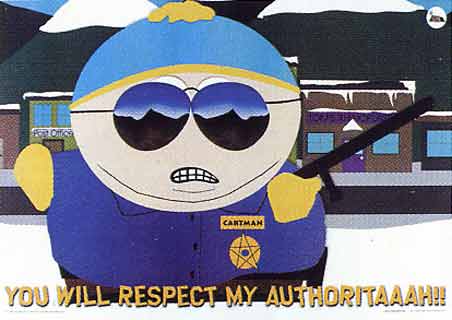The American Revolution has all the hallmarks of modern insurgency. The colonists revolted against a British government which they perceived as illegitimate. Washington's fledgling army was funded, in part, by Britain's rivals, hoping to overstretch and bankrupt the British Empire with a costly occupation. Moreover, American militiamen--the "Minutemen"--were capable part-time volunteers not unlike Motaqa al-Sadr's Mahdi Army.
But despite the Revolutionary War's obvious value to counterinsurgents--and its central role in our American heritage--it's been largely overlooked in counterinsurgency reading lists. Nevertheless, my readers came through with great suggestions. Tom Ricks suggested Piers Mackesy's The War For America 1775-1783, noting that it was also a great book on strategy. I've gotten a few chapters into this book already and found some great parallels to our modern-day counterinsurgencies.
- Think corrupt contractors are solely a modern-day phenomenon? Think again. During the Revolutionary War, quartermasters and contractors were estimated to have embezzled more than 400,000 British pounds over a five-year period.

- The British Army, as well as Hessian private military contractors, campaigned in luxurious conditions compared to those of the Colonists. This was largely out of necessity; American militiamen and Continental regulars could forgo luxury, as they fought on a relatively short-term basis. The British Army, on the other hand, could not operate in foreign territory for years at a time without their creature comforts. American troops in Iraq and Afghanistan find themselves in a similar situation, with many forward operating bases offering fast food, salsa dancing and pedicures.
- Asymmetry applied to the American Revolution just as easily as it applies to modern-day hybrid war and insurgency. British troops, trained to fight in mass formation upon the plains of Continental Europe--not unlike the US Army, trained to fight in the Fulda Gap--had considerable difficulty facing amorphous formations of Continental soldiers, concealed in forests. The British Army had to re-learn light infantry tactics in order to counter well-camouflaged sharpshooters and ambushes.
- The British Army lacked a general with the strategic vision of, say, a General Petraeus. The Howe brothers--Lord William Howe in particular--were described as having "no profound knowledge of the American political scene...their known professional abilities were those of tacticians". Of William Howe, author Piers Mackesy writes, "He was to command the greatest army ever sent across the ocean, in a situation of deep political and military confusion...the highest levels of command press harder on the intellect".
- Did the British get COIN? Maybe. One British general noted, "I never had an idea of subduing the Americans. I meant to assist the good Americans to subdue the bad". Really? Maybe they planned on setting up a "Sons of America". Another staff officer wrote, "The inhabitants received us with the greatest joy, seeing well the difference between anarchy and a mild regular government".
- Despite an early string of successes against General Washington and the Continental Army, the British remained a little too optimistic in the waning days of 1776, regrettably boasting that "everything seems to be over with [the American Colonists], and I flatter myself now that this campaign will put a total end to the war". Mission accomplished?
2 comments:
Read David Hackett Fisher's "Washington's Crossing", detailed, readable, brilliant. It was 5 years ago in reading about the winter/spring post battles of Trenton/Princeton, when Howe anted to 'pacify' NJ residents from the equivalent of FOBs and the Rebels (us!) kept ambushing his foragers, that it dawned on me that WE were now the Redcoats.
A while back I took a stab at how the Brits could have used 4GW/5GW to preempt a revolt in the North American Colonies:
http://purpleslog.wordpress.com/2006/04/03/thought-experiment-in-4gw5gw-the-takedown-of-sam-adams-and-john-hancock/
Post a Comment